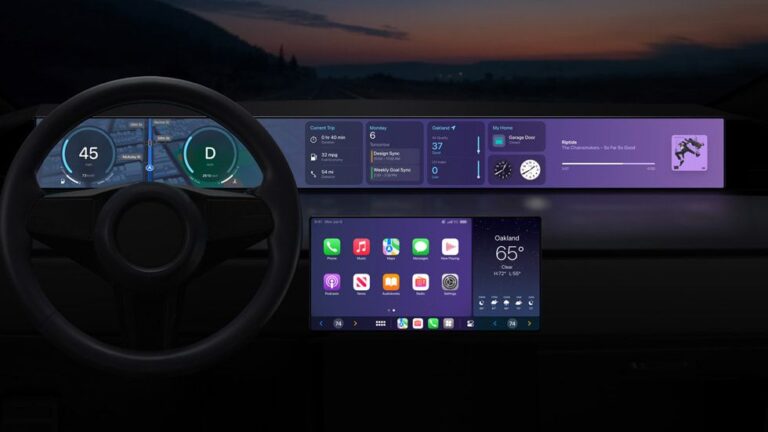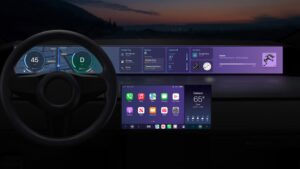- With ARM becoming an ever more dominant force in the world of microprocessors, the fate of its erstwhile competitor MIPS has long been uncertain.
- That uncertainty was cleared up yesterday with the announcement that Imagination Technologies would acquire the operations of MIPS for $60 and that a consortium led by ARM would acquire the bulk of the patents for $350m.
- Presumably the husk of MIPS will be wound up and the cash returned to shareholders.
- MIPS is a competitor to ARM as it also owns a design for a RISC based processor but for the last 10 years has been steadily ceding share to ARM.
- Without Imagination, the chances were that MIPS would simply decline into oblivion.
- Not because its technology is no good, but simply because fewer and fewer people are basing their software on the MIPS increasingly limiting its appeal.
- ARM is getting to the point where the ecosystem is so large that it doesn’t make sense to develop on MIPS anymore as it will be easier and cheaper just to switch to ARM.
- With Imagination there are other possibilities. Imagination owns a very successful graphics core (using a proprietary processor) which has similarities to the MIPS processor.
- Both Intel and Apple are licensees and shareholders of Imagination and hence being with Imagination could give the MIPS processor a longer lease of life
- I suspect that the current plan is to create integrated devices that have both a CPU and a GPU on board and to compete more directly with ARM and with the proprietary processors still being used in devices today.
- Recent benchmarks have shown the MIPS cores to be as good as ARM in terms of both performance and power consumption meaning that there are good quality chips to be offered if anyone will write the software.
- Android currently supports the MIPS processor meaning that the combination of MIPS and Imagination could be an attractive alternative for a chipset maker trying to break into a highly competitive market with something slightly different.
- However, ARM is now the industry standard for mobile and it looks very unlikely that MIPS in any guise will make any realistic impact upon that position.
- The opportunity here looks more likely to be those that have not yet made the switch from their own proprietary solutions to something else.
- ARM is not like Intel. ARM may have what looks like a monopoly in terms of market share but it does not behave like one, meaning that no one that I know of feels the need to look for an alternative.
- Hence, MIPS might see some added traction with Imagination but it is unlikely to affect ARM in a meaningful way.
- What is more important is the IPR.
- MIPS was founded in 1982 and owns a large patent portfolio that is fundamental to RISC Processors.
- Hence it is very likely that ARM infringes a number of these patents creating the potential for damaging litigation should the patents fall into the hands of trolls.
- Bridge Crossing LLC is an acquisition vehicle (where ARM is a leading partner) affiliated with Allied Security Trust which is a group of technology companies that acquires patents for the protection of its members from trolls. HPQ, Verizon, Cisco, Google and Ericsson are all members of Allied Security Trust.
- At some point further down the road the MIPS portfolio is likely to be sold on which could represent a return for ARM but for now this looks like an expensive, but important insurance policy.
- What does this mean for MIPS shareholders?
- This is where it gets interesting as it looks on paper that there is substantial upside in the share price based on where it is trading now.
- The deal itself is valued at $410m ($350m + $60m) to shareholders of MIPS or $7.63 a share.
- However as of end September 2012, MIPS had net cash of $130.33.
- Given that Imagination is only paying $60m for the operations it would seem that the cash balance is not included in the acquisition and that this still belongs to the shareholders of MIPS.
- This makes total cash of $540.33m or $10.06 a share. This is some 40% above yesterday’s close.
- However it appears that MIPS needs to pay for the cost of the transaction which is expected at $20m and that another $100m will be set aside to meet tax and other liabilities.
- This brings the cash balance down to $420.33m or $7.83 a share.
- On MIPS’s balance sheet, the patents are valued at next to nothing meaning that the company will be booking a big profit on their sale. The tax liability on that could easily be $100m on its own.
- Hence on my calculations there is around 8% upside in the share price to around $7.83m which is not that much to get excited about given the risks involved.









Blog Comments
tatilsever
November 7, 2012 at 7:44 pm
Tax liability depends on how they structured the deal. For example, the patents could be capital gains taxed at 15%, rather than regular corporate profit taxed at 35%. Many companies own their IP through overseas subsidiaries that does nothing, but own patents in jurisdictions with very very low corporate taxes. If some kind of MIPS shell company lives on, it may not pay any taxes on the patent sale in the near future.
windsorr
November 8, 2012 at 9:29 am
Yes..well if it can do that then there is a lot upside in the stock…the difference between $7,83 and $10.06 is the how much tax it has to pay….I should have a closer looks and maybe buy some shares!